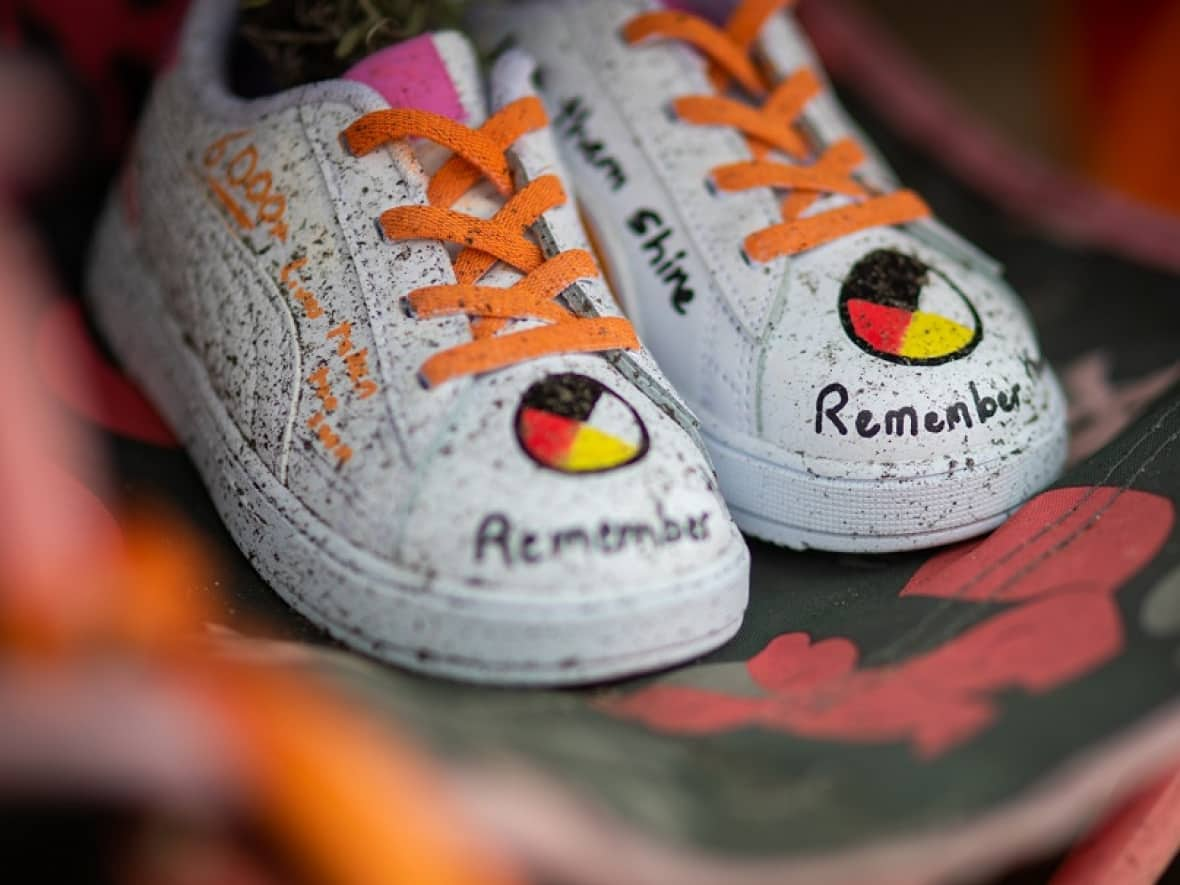Ottawa, National Centre for Truth and Reconciliation make deal to hand over residential school documents

The federal government has struck a deal with the National Centre for Truth and Reconciliation that will see it hand over thousands of residential school records, Crown-Indigenous Relations Minister Marc Miller said today.
The memorandum of agreement outlines how and when the federal government will share the documents with the Winnipeg-based National Centre for Truth and Reconciliation (NCTR).
"Canada has a moral obligation to survivors to pursue the truth and to ensure access to documents, school narratives and records, so important to healing, to closure, to education and preservation," Miller said today.
In October, the NCTR said Ottawa had yet to provide key documents detailing the histories of each government-funded, church-run institution that made up the residential school system.
In December, Miller said the government would hand over thousands of documents that the federal government had been criticized for withholding. Today, Miller said the deal will see more than 875,000 documents handed over to the NCRT.
WATCH | Crown-Indigenous Relations Minister speaks to CBC's Power & Politics about the agreement
The government said it did not release the documents earlier because of third-party obligations to Catholic entities, including the Sisters of St. Ann, Sisters of Charity of Providence of Western Canada, Sisters of the Presentation and La Corporation Episcopale Catholique Romaine De Prince Albert.
"To me as a survivor we have to acknowledge our shared history, where we've come from, where we're at today and where is it we're going to go into the future," said Garnet Angeconeb, a residential school survivor working with the NCTR.
"This is very important in that the records that will be handed over will be a way to get at the truth, to be able to tell our stories, to be able to validate and acknowledge where we have come from as survivors."
The search for more records
Among the records not yet released are what's known as school narratives — reports compiled by Ottawa outlining an individual institution's history, including its administration, the number of Indigenous children forced to attend it and key events, such as reports of abuse.
The 11 narratives being released to the NCTR are for the following institutions:
Assumption Indian Residential School (IRS)
Fort Vermilion IRS, Grouard IRS
Sturgeon Lake IRS
Kamloops IRS
Kuper Island IRS
St. Mary's IRS
Mistassini Hostels IRS
Kivalliq Hall IRS
Fort George Anglican (St. Phillips) IRS
Norway House (United) IRS
These new documents will be added to the narratives the NCTR has for 125 other residential schools. There are no narratives or surviving documents for the residential schools at Lac La Biche, Lesser Slave Lake, St. Augustine and St Joseph's.
Miller also said that he has told his staff to look for additional documents that can also be shared with the NCTR.
"I have also committed to an extensive internal review of all documents held by my department to identify other possible records we can share while respecting the crucial privacy obligations to survivors as well as other legal processes," Miller said.
"Out of an abundance of caution, I will be issuing a directive to my department to retain any and all documents relating to these types of records."
Honouring commitments
Stephanie Scott, the NCTR's executive director, said that by transferring these records Ottawa will help to piece together a more comprehensive picture of how the residential school system operated.
Demands for the documents grew louder last year after several First Nations announced that ground-penetrating radar had located what are believed to be the remains of hundreds of children in unmarked graves on the sites of former residential schools.
At Thursday's news conference, Scott said she hopes the federal government's spring budget includes funding to allow the NCTR to get a new building and more resources to properly archive and share documents.
Miller said his government made those promises during the 2021 election campaign and it intends to honour them.
"We know that the resources of the NCTR are well insufficient as well as the building in which it is housed, so I just want to reiterate that support," he said.


